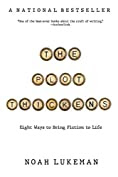The Power of Identity: Embracing Your Inner Writer
By Olivia Salter
In the realm of fiction writing, one of the most profound transformations an aspiring author can undergo is the moment they embrace the identity of a "writer." As Noah Lukeman aptly states, "All you need is the willingness to be labeled 'writer,' and with one word you are a writer." This simple yet powerful assertion encapsulates the essence of what it means to step into the world of storytelling.
The struggle many face when pursuing their passion for writing often stems from the belief that being a "writer" is reserved for those who have achieved fame, published bestsellers, or received accolades for their work. This perception can lead to a paralyzing fear of inadequacy, causing countless individuals to silence their creative voices. However, the truth is that writing is not limited to those with a prestigious title; it is accessible to anyone willing to embrace it.
Taking on the label of "writer" is not merely about producing polished manuscripts or gaining external validation. It is an act of self-acceptance, a declaration that you are committed to crafting stories and expressing your thoughts through words. This shift in mindset can be incredibly liberating. By identifying as a writer, you open yourself up to the creative process without the burden of judgment or comparison.
The journey of writing is inherently personal and unique to each individual. It is a space where you can explore your thoughts, feelings, and experiences. Embracing your identity as a writer allows you to engage with your creativity authentically. You can write for yourself, without the pressure of conforming to established norms or expectations. This freedom fosters innovation and exploration, enabling you to develop your distinct voice and style.
Moreover, the willingness to identify as a writer encourages consistency and commitment. When you view yourself as a writer, you are more likely to prioritize your craft. You will seek out opportunities to write, whether through daily journaling, participating in writing workshops, or setting aside dedicated time for your fiction projects. This sense of identity can transform writing from a casual hobby into a purposeful pursuit, igniting a passion that drives you forward.
It’s essential to remember that every writer starts somewhere. The most celebrated authors were once beginners, grappling with self-doubt and uncertainty. The difference lies in their willingness to embrace the label and persist through challenges. By acknowledging yourself as a writer, you join a vast community of creatives who share similar struggles and triumphs. This sense of belonging can be immensely encouraging, providing support and inspiration as you navigate your writing journey.
In conclusion, the path to becoming a writer begins with a simple yet profound acknowledgment of your identity. By embracing the label of "writer," you grant yourself permission to explore your creativity without fear. You embark on a journey of personal expression, growth, and discovery, where every word you write contributes to your evolution as an artist. So, take a moment to embrace this identity, and allow yourself to dive into the world of storytelling. With one word, you are a writer—now, let your stories unfold.








